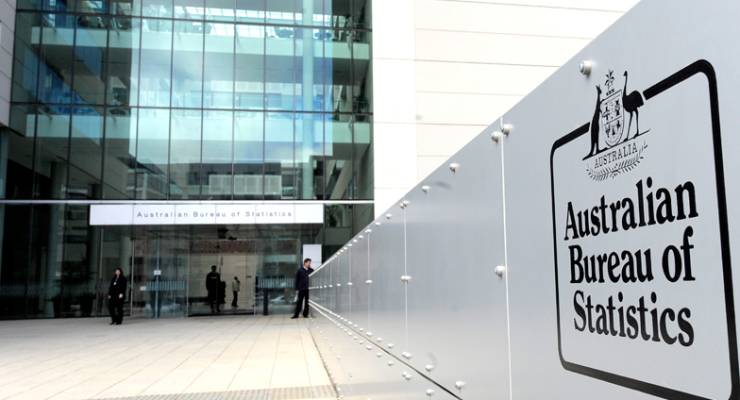
Why is the Australian Bureau of Statistics retaining personal identification information on every Australian in this year’s census? Crikey has learned it is to save money and achieve “organisational efficiencies”.
The ABS, which has been struggling with government budget cuts for several years, quietly announced the historic change right before Christmas last year and has been savaged by privacy advocates given the extraordinary threat to privacy of permanently retaining (the ABS says in separate files) names and addresses along with census data to be collected on August 9. In announcing the dramatic change, the ABS claimed it would “provide a richer and dynamic statistical picture of Australia”.
However, documents obtained under freedom of information by James Smith via the Right To Know site reveal that saving money is one of the primary goals of the ABS. The current proposal was discussed at an ABS leadership group meeting in October when the group was told it would “support a range of organisational efficiencies, such as the development of the ABS Address Register, improved sampling, imputation, and provider management.” A subsequent December meeting was told:
“The retention of personal identifiers would support the development of the ABS Address Register and its use as a means of improving organisational efficiency through better sampling, and more effective and efficient provider contact. It would also support broader ABS organisational efficiencies.”
Until the 2015 budget provided additional funding, the ABS had suffered a series of budget cuts that had undermined the quality of, among other series, its unemployment numbers — the bureau now emphasises trend numbers rather than seasonally adjusted numbers due to concerns about the quality and volatility of the latter. Early last year, it emerged the ABS and the government were considering dumping the 2016 census altogether due to its cost.
The ABS considered keeping identifying information a decade ago but rejected the idea on privacy grounds after an assessment by privacy veteran Nigel Waters. However, years of budget cuts, efficiency dividends and the need to save money appear to have forced the bureau to have a change of heart.
According to papers presented to the ABS leadership, personal identifying information will be “critical to driving efficiency in ABS data collection activities” — partly because it will ensure that the ABS will know exactly where every Australian lives: “to fully meet our objectives, the address register needs to be extended with additional addresses captured through the 2016 Census, as well as be populated with characteristics of these dwellings”.
The ABS also believes that being able to “personalise” its attempts to obtain information from householders will benefit, but it has a suspicion it might not be fully appreciated.
“The retention of names, addresses or other contact information increases the likelihood of the success of this contact by allowing the ABS to ‘personalise’ interactions with respondents, rather than addressing correspondence to ‘The Householder’. However it is possible that some people may find it intrusive that ABS knows their name.”
The ABS acknowledged in several documents that the move was likely to be controversial:
“The key risks of extending ABS policy on the retention of names and addresses relate to the potential for loss of trust from providers due to privacy concerns or breaches, leading to a reduction in response rates to ABS collections. Making the public commitment to delete such information has been seen as a powerful strategy to alleviate any concerns over privacy and confidentiality, whilst also reducing the risk of accidental or malicious disclosure.”
A focus group study was conducted into the proposed change and found that there was concern about the retention of names with survey data or other government data, but respondents were much more relaxed about the retention of address information.
Only one-third of the focus group were fine with the ABS retaining names, and while the ABS was surprised that even one-third were OK with it, the bureau noted that this might still not be enough to win over support for the change:
“This does not appear to be sufficient support to give confidence that this would be acceptable to the broader community.”
While people do view the ABS as a trustworthy organisation, the study found there was concern that the data could be breached:
“A key concern related to the belief that personal identifier information would remain appended to survey or other government data, such that once an individual or a rogue agent gained access to an ABS database they would have all the details required to potentially impact on the identified individuals in a negative manner. In comparison, participants believed that a unique (or non-unique) non-identifying name offered a greater degree of protection for the security and privacy of individuals.”
The ABS has resolved to retain names rather than unique non-identifying names but has said names and addresses will be kept separately from other census data.








The whole thing is a farce. I intend to apply civil disobedience to whatever extent I find I can get away with, and will be providing as little information as possible.
And I don’t buy the line that there are any real ‘efficiencies’ in appending personal data to the census data. It’s a line that sounds as bogus as all get out to me.
I too intend to engage in civil disobedience over this issue, for the first time in my life. I actually support the goals of the ABS so it pains me to have to do so. I guess there will be fines, court notices and all sorts to deal with… not looking forward to that, but that old line of Burke’s comes to mind.